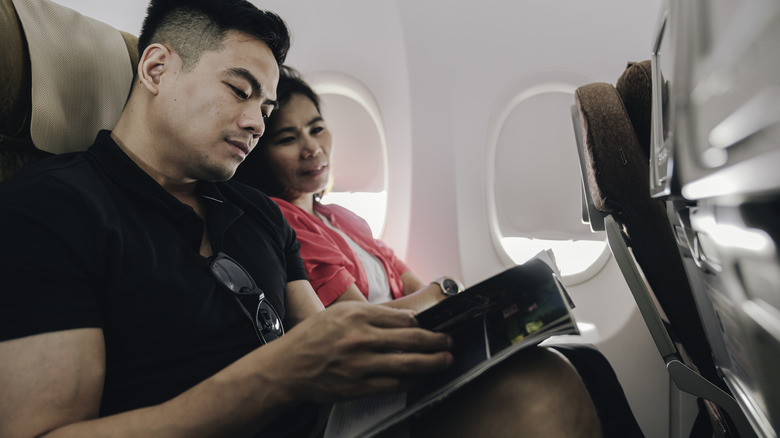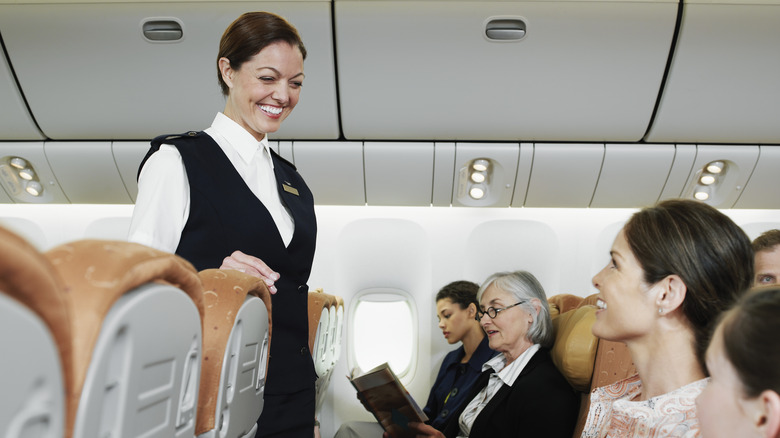Unexpected Things Flight Attendants Notice About A Passenger's Physical Appearance
You may think you know everything about a flight attendant's job. They help people find their seats, give safety briefings, and make sure seatbelts are fastened and tray tables are stowed and locked. They serve drinks and meals and throw away garbage cluttering the cabin. You may also know that flight attendants are there for passengers' safety, assisting and directing fliers to exits in the case of an emergency. However, another thing you may not know is part of their job is observation. Flight attendants notice things about you when you board a plane, like the shoes you're wearing or if you seem nervous. Another thing they notice about your appearance is whether or not you're physically fit.
You may know that, if you're sitting in an exit row, you'll be asked to help out during an emergency, which is why you must be at least 15 years old and capable of helping to sit there. But besides those sitting in the exit row, cabin crew may look for other physically strong travelers to call on for help. In fact, you may be referred to as an "ABP," or able-bodied person, by flight attendants, who often use slang to identify passengers to each other. (You may also be referenced by your seat number and letter from the NATO phonetic alphabet. For instance, someone sitting in 20C may be called "Charlie 20.")
Why flight attendants notice physical strength
Another thing that flight attendants may notice comes through conversation. If you're chatting with them and you mention being a firefighter, police officer, or military personnel, this information can alert a flight attendant that you're someone who can help out if strong bodies are needed. (Of course, if you're a doctor, it's also helpful to let the flight attendants know so they can turn to you if there's a medical issue on board.)
Physically strong passengers are useful not only in emergencies but in other situations, too. A passenger might just need a hand putting their luggage in the overhead bin. Or if there's a situation where a passenger gets out of control, knowing who can help can be vital. For example, passengers helped restrain an unruly person on a 2019 flight from Australia to Singapore when he became violent after drinking too much.
If you are an ABP and can help out in emergencies, some flight attendants would like to know up front. For instance, in answer to a Reddit question about how an ABP should identify themselves on a plane, flight attendant u/OkReputation2694 answered, " ... just let the boarding flight attendant know 'if you need an able bodied person, I'm here.'" The Redditor also mentioned that joking about not being able to help while sitting in an exit row is a no-no. They said, "I can't tell you how many times I have to brief an exit row and people will joke, 'but in an actual emergency, I'll look at someone else to help' ... like you do realize I have full authority to remove you from the exit row now?! So thank you!!"

